Oleg Golovidov
Constrained Multi-Objective Optimization for Automated Machine Learning
Aug 14, 2019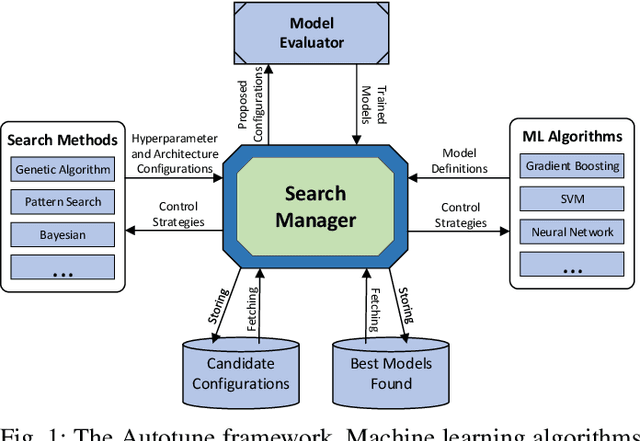
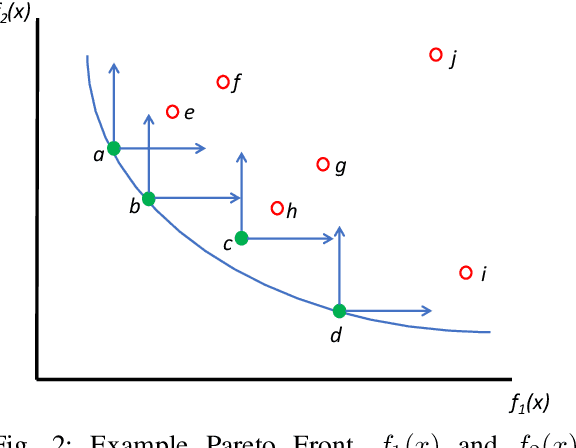


Abstract:Automated machine learning has gained a lot of attention recently. Building and selecting the right machine learning models is often a multi-objective optimization problem. General purpose machine learning software that simultaneously supports multiple objectives and constraints is scant, though the potential benefits are great. In this work, we present a framework called Autotune that effectively handles multiple objectives and constraints that arise in machine learning problems. Autotune is built on a suite of derivative-free optimization methods, and utilizes multi-level parallelism in a distributed computing environment for automatically training, scoring, and selecting good models. Incorporation of multiple objectives and constraints in the model exploration and selection process provides the flexibility needed to satisfy trade-offs necessary in practical machine learning applications. Experimental results from standard multi-objective optimization benchmark problems show that Autotune is very efficient in capturing Pareto fronts. These benchmark results also show how adding constraints can guide the search to more promising regions of the solution space, ultimately producing more desirable Pareto fronts. Results from two real-world case studies demonstrate the effectiveness of the constrained multi-objective optimization capability offered by Autotune.
Autotune: A Derivative-free Optimization Framework for Hyperparameter Tuning
Aug 02, 2018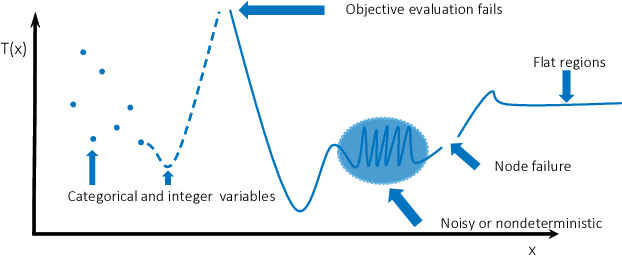
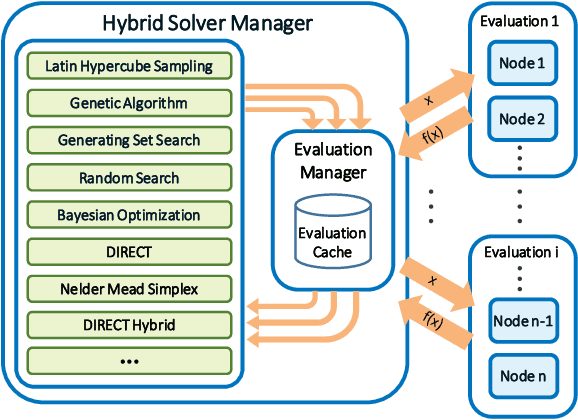
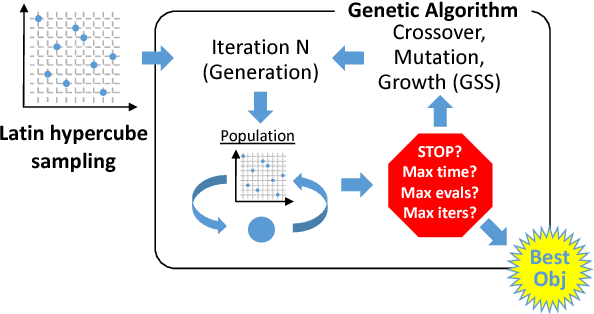
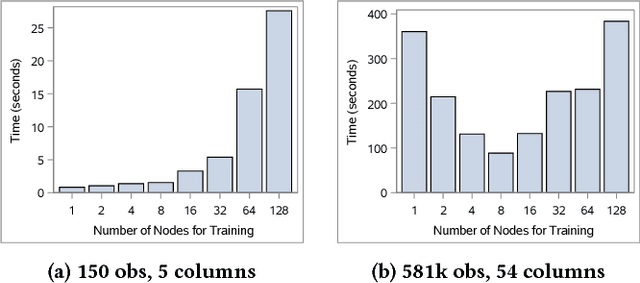
Abstract:Machine learning applications often require hyperparameter tuning. The hyperparameters usually drive both the efficiency of the model training process and the resulting model quality. For hyperparameter tuning, machine learning algorithms are complex black-boxes. This creates a class of challenging optimization problems, whose objective functions tend to be nonsmooth, discontinuous, unpredictably varying in computational expense, and include continuous, categorical, and/or integer variables. Further, function evaluations can fail for a variety of reasons including numerical difficulties or hardware failures. Additionally, not all hyperparameter value combinations are compatible, which creates so called hidden constraints. Robust and efficient optimization algorithms are needed for hyperparameter tuning. In this paper we present an automated parallel derivative-free optimization framework called \textbf{Autotune}, which combines a number of specialized sampling and search methods that are very effective in tuning machine learning models despite these challenges. Autotune provides significantly improved models over using default hyperparameter settings with minimal user interaction on real-world applications. Given the inherent expense of training numerous candidate models, we demonstrate the effectiveness of Autotune's search methods and the efficient distributed and parallel paradigms for training and tuning models, and also discuss the resource trade-offs associated with the ability to both distribute the training process and parallelize the tuning process.
 Add to Chrome
Add to Chrome Add to Firefox
Add to Firefox Add to Edge
Add to Edge